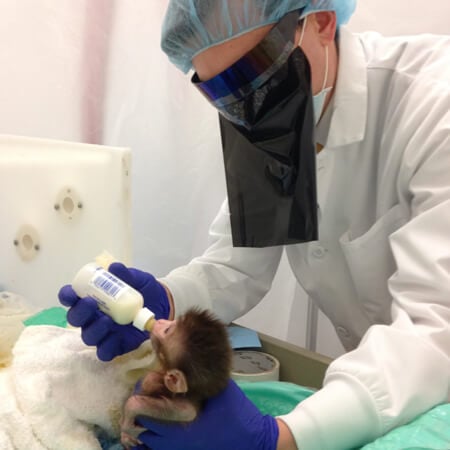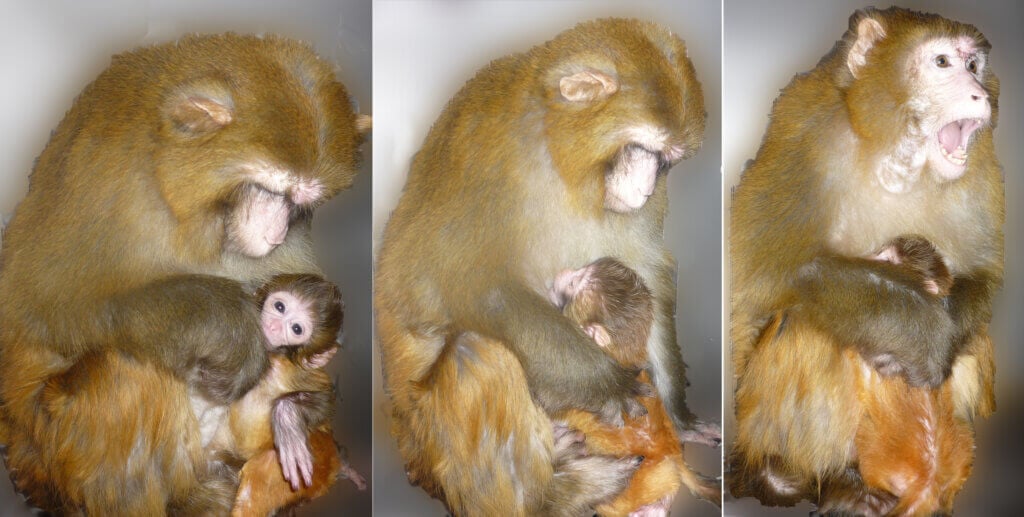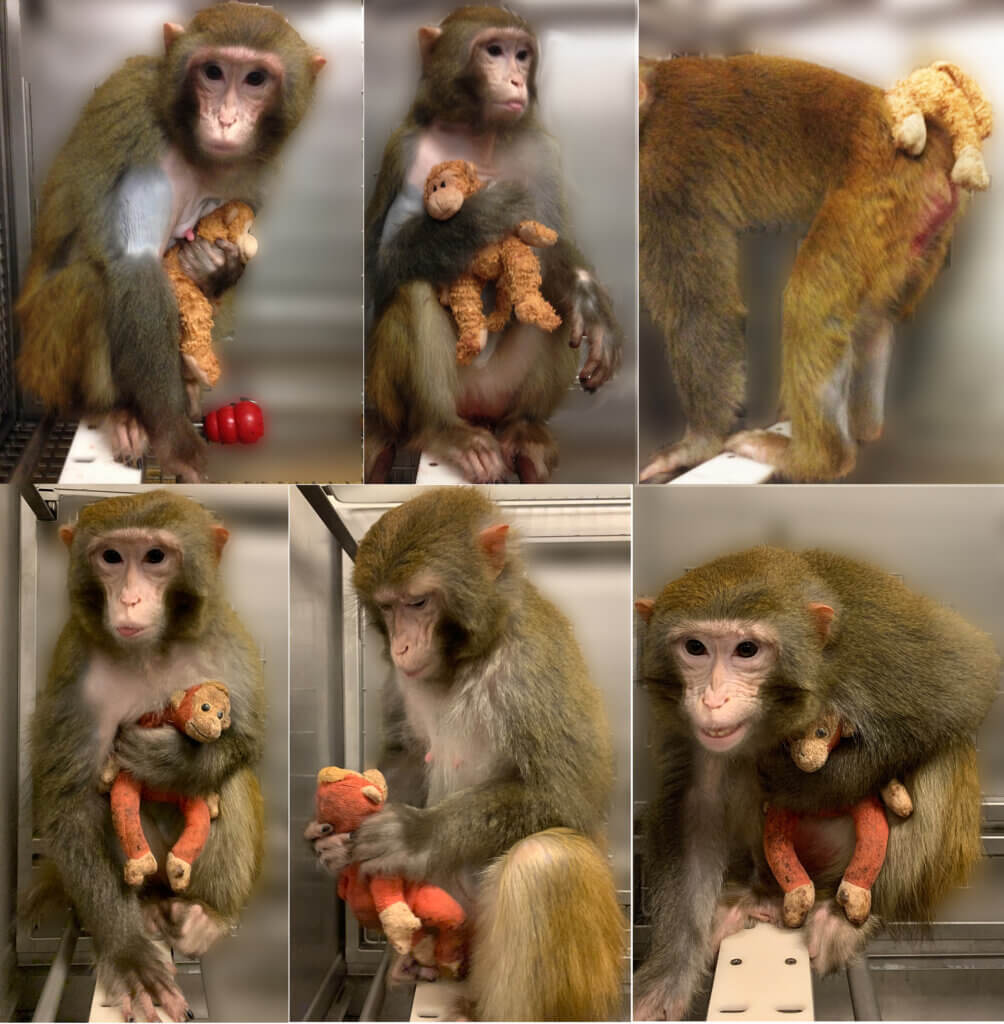Harvard Experimenter Continues Depraved Legacy of Britches’ Tormenter
Margaret Livingstone steals baby monkeys from their mothers and has sewn their eyes shut in depraved “sensory deprivation” experiments. We won’t stand for it.
We thought this type of experimentation had ended in 1985 when activists liberated baby Britches from the bowels of a University of California laboratory. The tiny monkey had been taken from his mother, and his eyelids had been sewn shut. The ensuing scandal—along with PETA’s exposure of other horrifying experiments—led to historic amendments to the federal Animal Welfare Act to prevent such horrors.
But it has happened again.
Margaret Livingstone, a Harvard University experimenter, has spent her entire 40-year career tormenting animals, including by tearing baby monkeys away from their mothers and sewing their eyes shut—or making sure they never see a human or monkey face in other ways—just to see how badly it damages their brain and visual development. Livingstone calls it science. We call it torture. Harvard must shut down her lab permanently and have her head examined.
Livingstone has stolen perfectly healthy babies from their loving mothers at birth and deprived them of normal visual input by stitching their eyes closed, condemning them to a world of complete darkness. It’s straight out of a horror movie. Even to dream up such abuse—let alone establish an entire laboratory devoted to its practice—suggests deep psychological troubles worthy of professional examination.
The findings of this twisted fever dream? Spoiler alert: Being blinded for your first year of life is bad for the development of your brain and vision. Something we’ve known for decades is the sum total of Livingstone’s contribution to science.
But Livingstone has feathered a nice nest for herself, raking in $32 million in taxpayer money from the National Institutes of Health (NIH) since 1998 to fund her monstrous reign of terror.
The Seventh Circle of Hell for Baby Monkeys
In some of Livingstone’s experiments, she sewed the baby monkeys’ eyes shut and left them that way for up to a year. In others, the motherless monkeys are reared by laboratory staff who wear welding masks.
Read that again: They wear welding masks.
These fragile and terrified infants don’t see any face, monkey or human, for a year. Livingstone then tests their face-processing abilities to see how badly they’ve been damaged.
To do this, Livingstone immobilizes her helpless victims by surgically implanting a steel post in their head, strapping their chin tightly, or forcing them to bite down on a bar. Sometimes, she surgically implants electrodes into their brain in order to record how their deprived brain cells respond to visual cues.
After years of this torment, she kills many of the monkeys and dissects their brains.
After PETA raised the alarm, more than 380 scientists, doctors, academics, and lawyers from around the world—including renowned primatologist Dr. Jane Goodall—signed a letter to NIH blasting both the scientific and the ethical rationale for these experiments and urging the agency to terminate its funding of them.
The Unsurprising Results of Daily Terrorism
Baby monkeys who are stolen from their mothers at birth are damaged permanently, both physiologically and psychologically. That’s already well known. Motherless monkeys are more fearful and aggressive, produce excess stress hormones, and frequently rank at the bottom of the social dominance hierarchy. They repeatedly circle or pace in their cages, rock back and forth, or do nonstop backflips—behavior indicative of frustration and stress. These abused monkeys have abnormal sleep patterns, increased susceptibility to alcohol abuse, and increased startle and stress responses to threats. We already knew this, too. Livingstone’s depravity is adding nothing to our knowledge.
In a not-so-shocking illumination of the obvious, Livingstone’s most recent publication acknowledges that mother monkeys become distressed when their babies are stolen from them. Who would have guessed? With her purportedly vast scientific knowledge, Livingstone apparently hadn’t figured this out, even though mother monkeys—often howling in despair—have to be anesthetized before their babies can be pried from their hands.
Livingstone’s paper continues reciting well-established information as if it were new, such as highlighting that some of these mothers will cling to soft objects for comfort—if they’re ever offered such things. Those are your tax dollars at work, right there.
The paper is so patently worthless and describes such blatant cruelty that it has garnered intense backlash, including a call by 250 scientists and graduate students for its retraction—a move almost unprecedented in scientific circles.
“We ask that PNAS retract Professor Livingstone’s article “Triggers for Mother Love” due to the unethical practices and research standards it promotes and its failure to advance scientific knowledge.”
—Authors of a letter to editors of Proceedings of the National Academy of Sciences
Disassociation Is a Psychological Disorder
After four decades of stealing infant monkeys from their distraught mothers and often intentionally blinding them, Livingstone said recently—and apparently without a hint of irony—“[I]t is a privilege to work with macaques. We take great care to treat them well, to raise them in comfortable, enriched environments with a lot of nurturing care.”
Except for the part where they torture them.
Livingstone has also said that she’s so fond of the monkeys she abuses that she keeps a photo of one of them as the background on her cell phone.
You can almost get whiplash trying to wrap your head around that one.
Livingstone is part of a trifecta of experimenters who have terrorized monkeys and continues a depraved tradition thinly disguised as science. She drinks from the well poisoned by Harry Harlow—the father of maternal deprivation experiments on monkeys—and Stephen Suomi, Harlow’s academic progeny who co-invented the “rape rack” and the “pit of despair.”
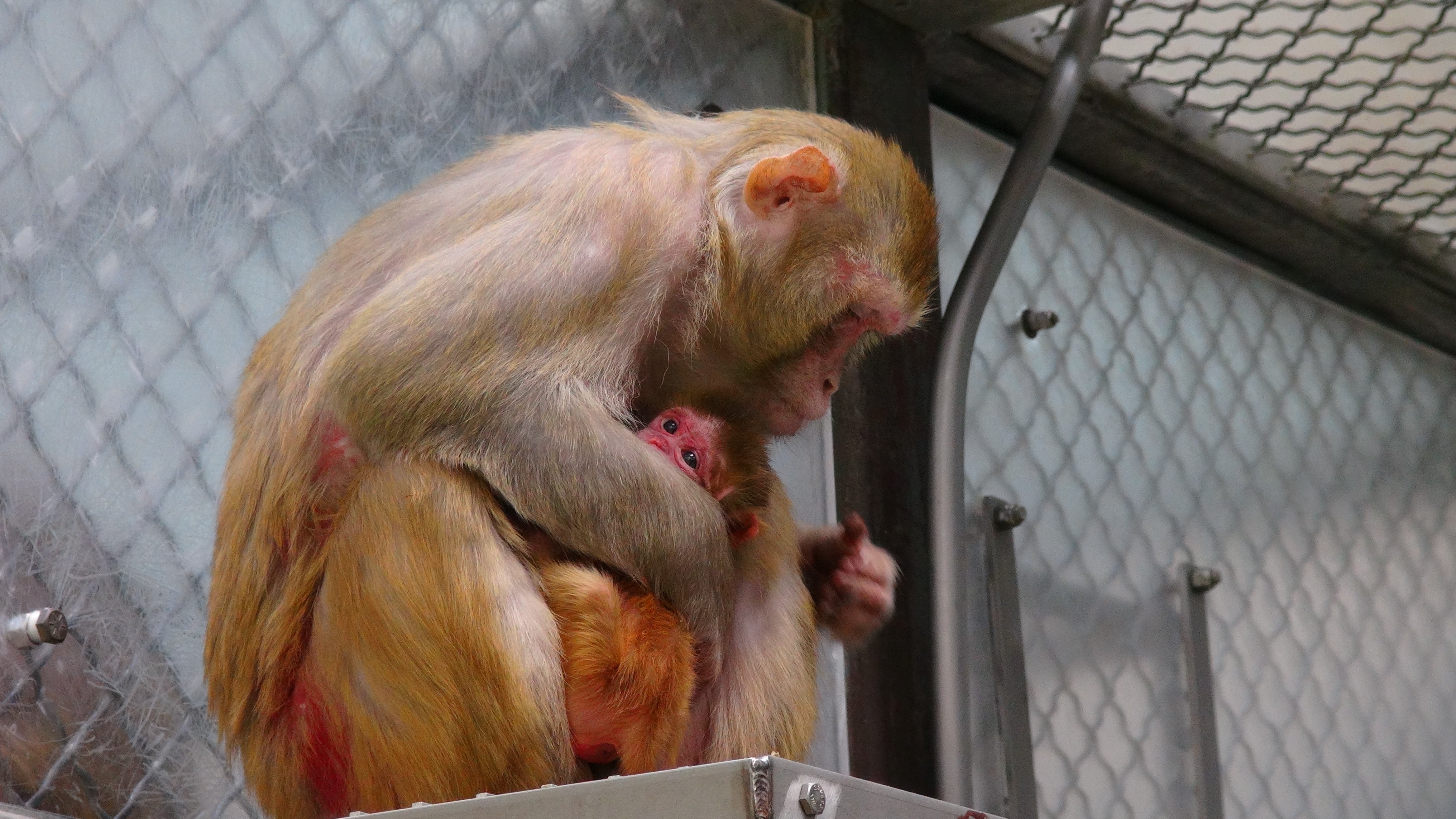
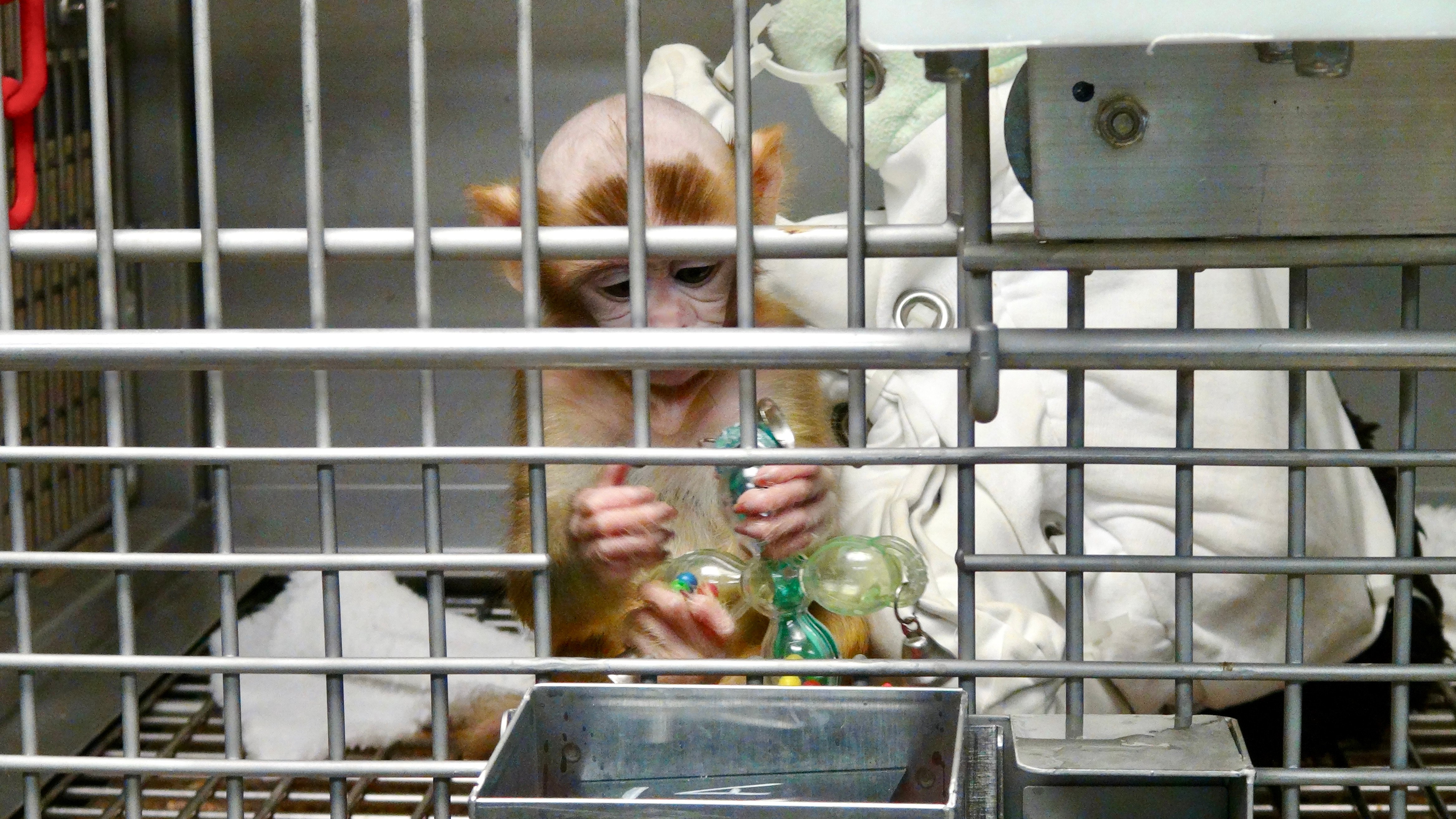
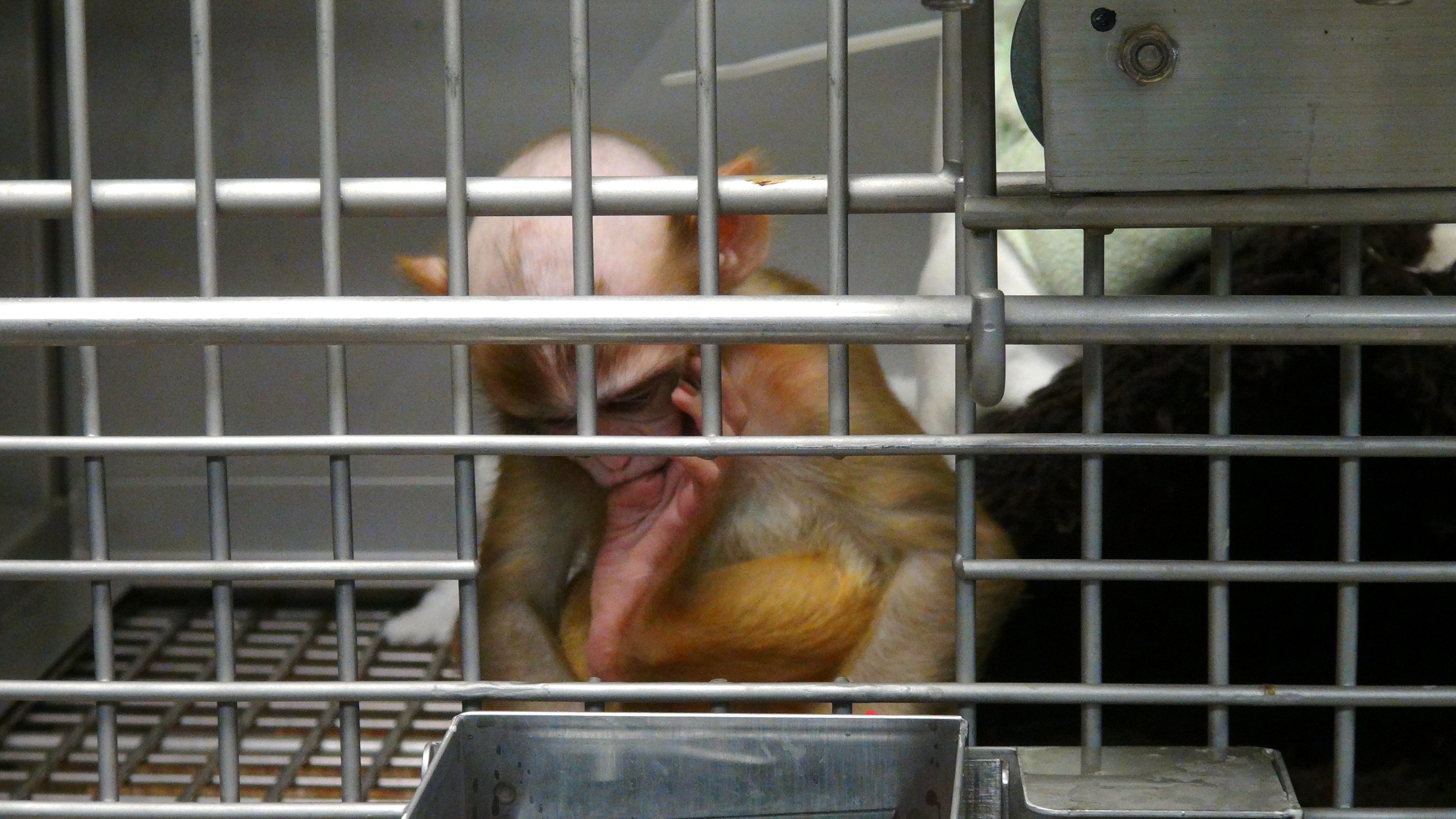
So Far Beyond the Pale
We’re not impressed with what Marge calls work. By any rational measure, what she does is a sign of sickness—mentally, she may be quite unbalanced. Harvard must shut down her lab and arrange a psychological evaluation for her.
Take a minute to urge Harvard’s administration to close Livingstone’s laboratory, get her a psych evaluation, and release the remaining monkeys to a sanctuary immediately.
You can do so by sending polite comments to the following people:
Alan M. Garber, M.D.
Interim President, Harvard University
[email protected]
George Q. Daley, M.D., Ph.D.
Dean, Harvard Medical School
[email protected]
